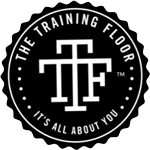Sugar – Food or Drug?
One of the most frequently heard phrases in dieting circles is “I’m addicted to sugar”. This brings up an interesting question.
Is sugar a food, or is it a drug?
The line may not be so clear, but research coming out of Australia has demonstrated the addictive nature of sucrose, the scientific term for table sugar. Excess sugar consumption has been shown to lead to weight gain and a host of health issues. Reducing sugar intake is challenging, and many people report cravings that are hard to resist.
Excess sugar consumption messes not just with the body, but also with the brain. It repeatedly elevated dopamine levels in the brain. Dopamine is a chemical that is released in the brain’s pleasure and reward systems. Drugs such as cocaine, morphine, and nicotine cause similar dopamine release.
As the brain adjusts to a certain level of sugar (or other drug) intake, less dopamine is produced, which increases cravings, and leads to increased consumption.
A study conducted on rats at the Queensland University of Technology, found that an effective means to counter sugar addiction is the administration of varenicline, an FDA approved medication used to help people quit smoking. Varenicline is a “partial agonist”, competing with dopamine in binding to the pleasure and reward receptors in the brain, but creating less of an impact. When varenicline is taken, the pleasure derived from sugar is substantially reduced and the cravings subside. Dopamine levels return to normal.
The researchers conclude that drugs such as varenicline may represent a novel approach to reducing sugar consumption. Before you rush off to fill a prescription, keep in mind that replacing one drug with another is not necessarily a good strategy.
The key takeaway from this post should be that sugar addiction should be taken more seriously. If you have sugar cravings, it’s not because you are weak-willed or lazy, but because it is messing with your brain.
